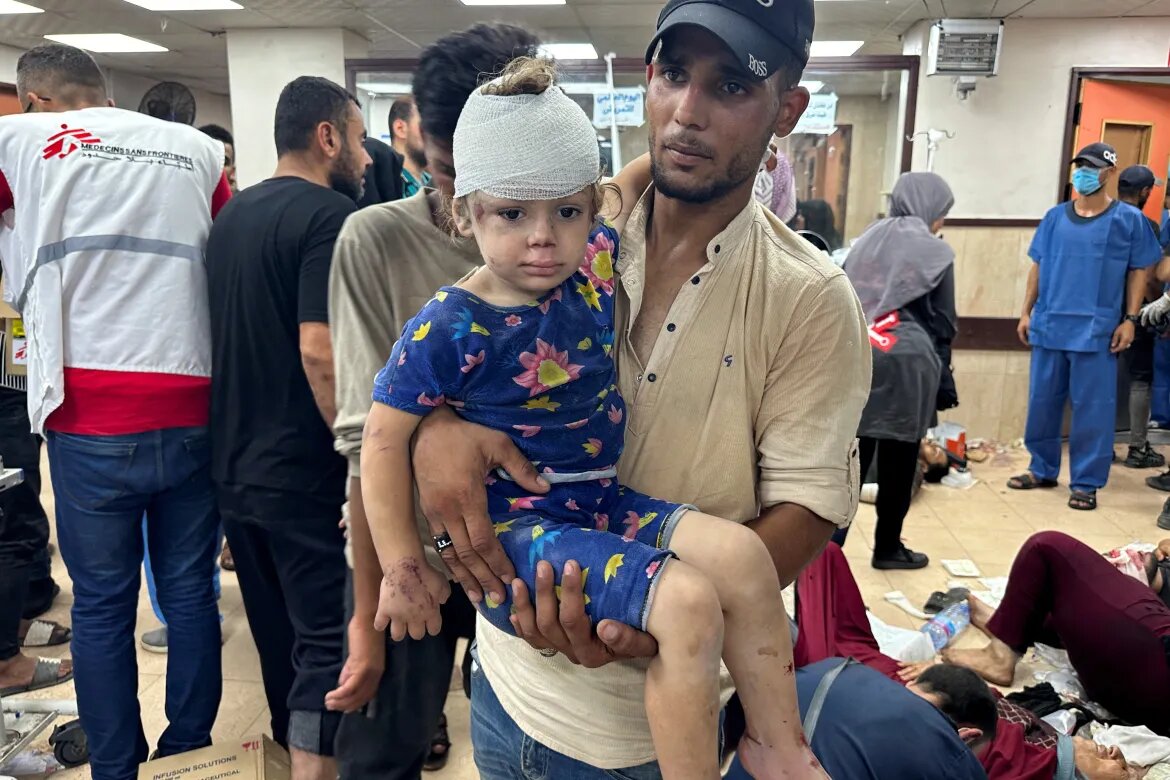By Wesam Bahrani
274 Palestinians killed to retrieve 4 captives

TEHRAN- The Israeli occupation forces (IOF) killed 274 Palestinians and injured almost 700 others, including women and children to retrieve 4 captives in central Gaza on Saturday.
Before retrieving the captives, warplanes rained down bombs overnight at residential zones in the Nuseirat refugee camp, razing much of the camp to rubble and clearing the way for Israeli ground forces to invade it.
In a broader context, the IOF has waged more than eight months of genocide in Gaza, killing nearly 40,000 Palestinians, (including 16,000 children) and injuring more than 80,000 others to recover four captives.
Gazan paramedics and residents told news outlets on Sunday that the air and ground assault left a huge number of mangled bodies of men, women and children around a marketplace and a mosque at the Nuseirat camp.
"It was like a horror movie but this was a real massacre," said Ziad, 45, a paramedic and resident of Nuseirat, who gave only his first name to keep his own security from the IOF.
"Israeli drones and warplanes fired all night randomly at people's houses and at people who tried to flee the area," he added.
Graphic footage at two nearby hospitals, which are barely functioning, shows dead and severely injured Palestinian children lying on beds and the ground.
Al-Aqsa Martyrs Hospital is believed to have received the highest number of casualties.
On Sunday, the Palestinian health ministry put the number of people killed to at least 274 with at least 698 injured.
Tel Aviv has used captives to legitimize killing, injuring, and starving Palestinians in the Gaza Strip, Francesca Albanese, the UN Special Rapporteur on Human Rights in the Occupied Territories, said on Saturday.
The irony is that the IOF could only recover four captives from Gaza, after more than eight months of a genocidal war, and with all the military and intelligence capabilities and superiority, which Western media failed to address.
A senior Hamas official, Sami Abu Zuhri, told Reuters after that "regaining four captives after nine months of fighting is a sign of failure not an achievement".
Experts say the U.S.-backed Israeli operation does not change anything strategically but does put any potential ceasefire deal and exchange of Israeli captives for Palestinian prisoners in jeopardy.
Making matters potentially worse for Netanyahu, such was the ferocity of the Israeli airstrikes to retrieve the four captives, the strikes also killed other Israeli captives held in Gaza.
"The enemy succeeded, through committing horrific massacres, in releasing some of its captives, but at the same time killed some of them during the operation."In a statement on its official Telegram channel, the spokesman for the armed wing of Hamas, Abu Ubaida, said, "The enemy succeeded, through committing horrific massacres, in releasing some of its captives, but at the same time killed some of them during the operation."
"What the Zionist enemy executed in the Nuseirat area in the middle of the Gaza Strip is a compound war crime, and the first to be affected by it are its captives," Abu Ubaida added.
Hamas underlined that "the resistance is still holding a larger number of captives and can increase it".
Western media outlets joined their Israeli counterparts by branding the U.S.-backed operation as an achievement for the occupation regime while overlooking the massacres committed.
The Israeli media narrative claimed that the "recovery of the captives is achieved through military action, not negotiations".
Also overlooked by Israeli and Western media was that Hamas had offered to release the same captives in March but Prime Minister Benjamin Netanyahu's government rejected the offer.
More importantly, the operation regime does not answer the major questions for the occupation: How will it recover its captives? How will it return the settlers to the north? How will it rebuild deterrence? How will it restore its reputation globally? How will it achieve victory and restore confidence in its army and the Israeli public, which relies on an effective army and security establishment?
Many observers have alluded to the four Israeli captives and how they are largely linked to internal Israeli political infighting, given the state of severe division and polarization, along with the exchange of accusations and responsibilities for the Israeli security failures over the past nine months.
Some Israeli officials have tried to paint an unrealistic picture to cover up military and security failures. Even footage of Netanyahu embracing the captives has been condemned for trying to manipulate the reality for the Israeli premier’s political benefit.
An opinion poll conducted by Israeli Channel 12 on Friday showed 62% of voters are unwilling to cast their ballots for a party that backs Netanyahu. In contrast, only 19% expressed support for parties endorsing Netanyahu, while another 19% of respondents remained undecided.
The former head of the IOF's Operations Division, Yisrael Ziv, stated that a "comprehensive deal" is needed to bring back the remaining captives and end the war.
Israeli news outlet Maariv cited him as saying, "Only a deal can bring the captives back… such a deal cannot stand alone, it must be part of a comprehensive deal to end the war." He added, "This time... it is more in Israel’s interest than Hamas’s because there is an existential threat looming in the north".
But is Netanyahu interested in ending the war and bringing back Israeli captives?
In an interview with Time magazine, U.S. President Joe Biden let slip that "there is every reason" for people to conclude that Netanyahu is prolonging the war on Gaza for his own political survival.

No comments:
Post a Comment